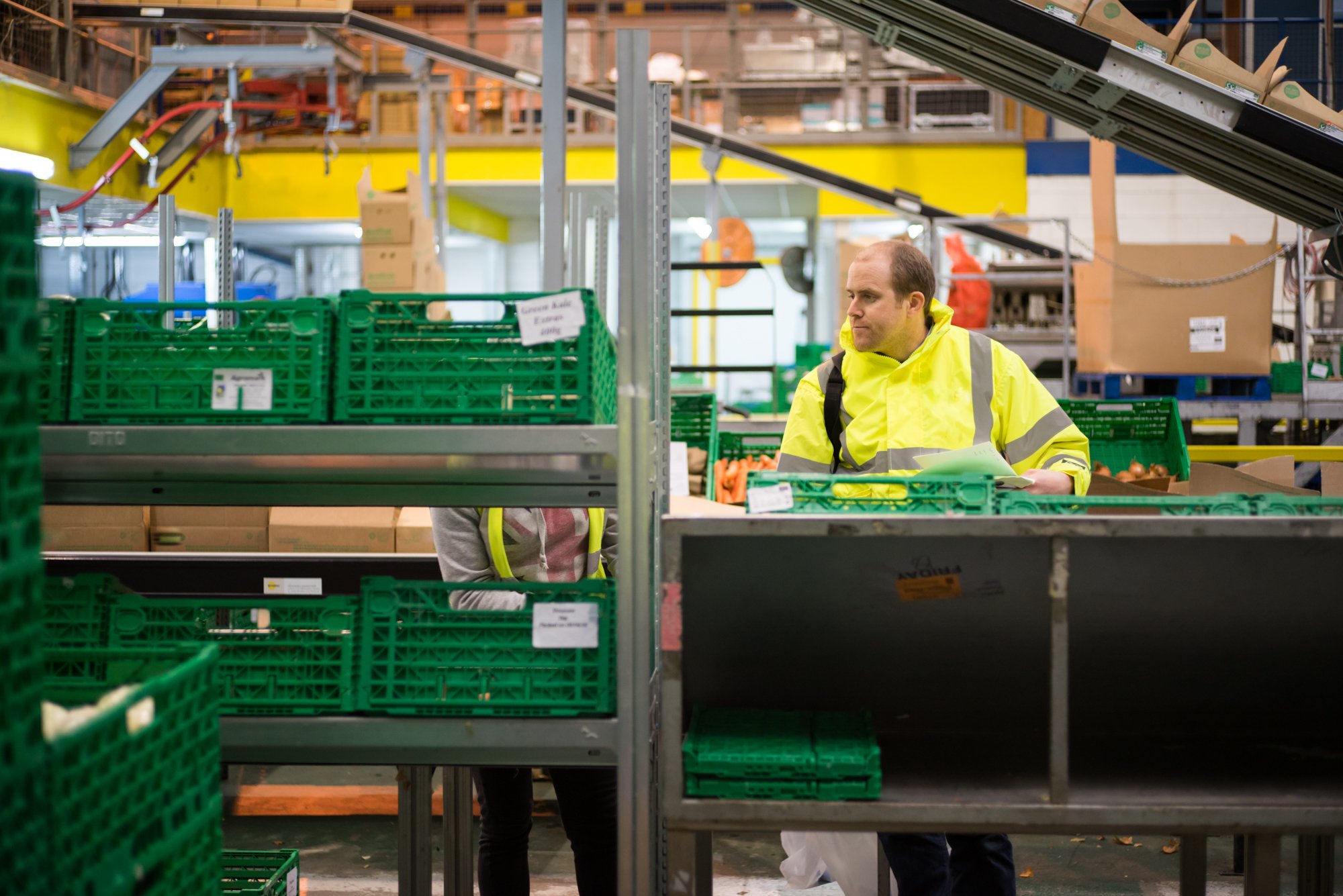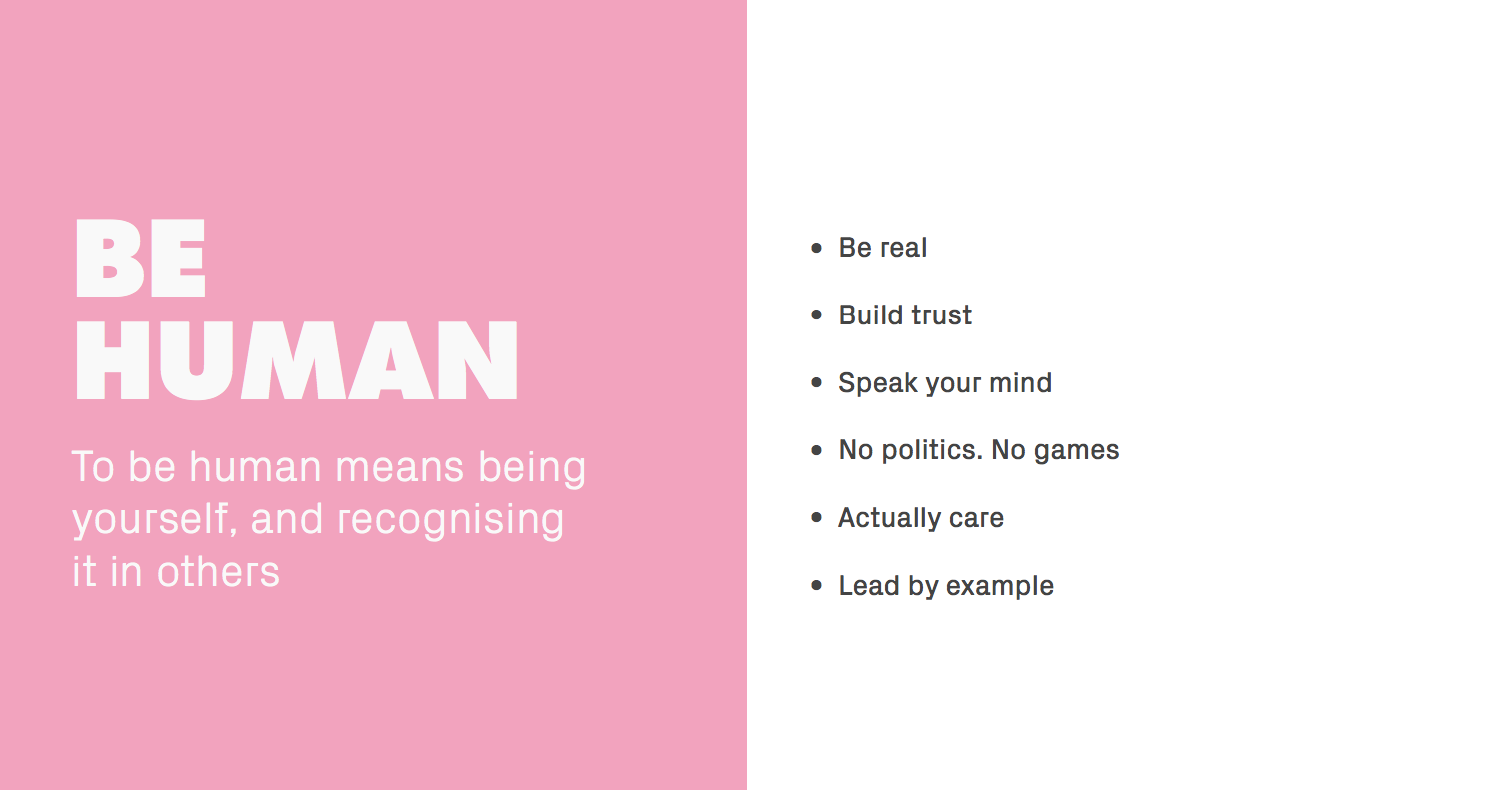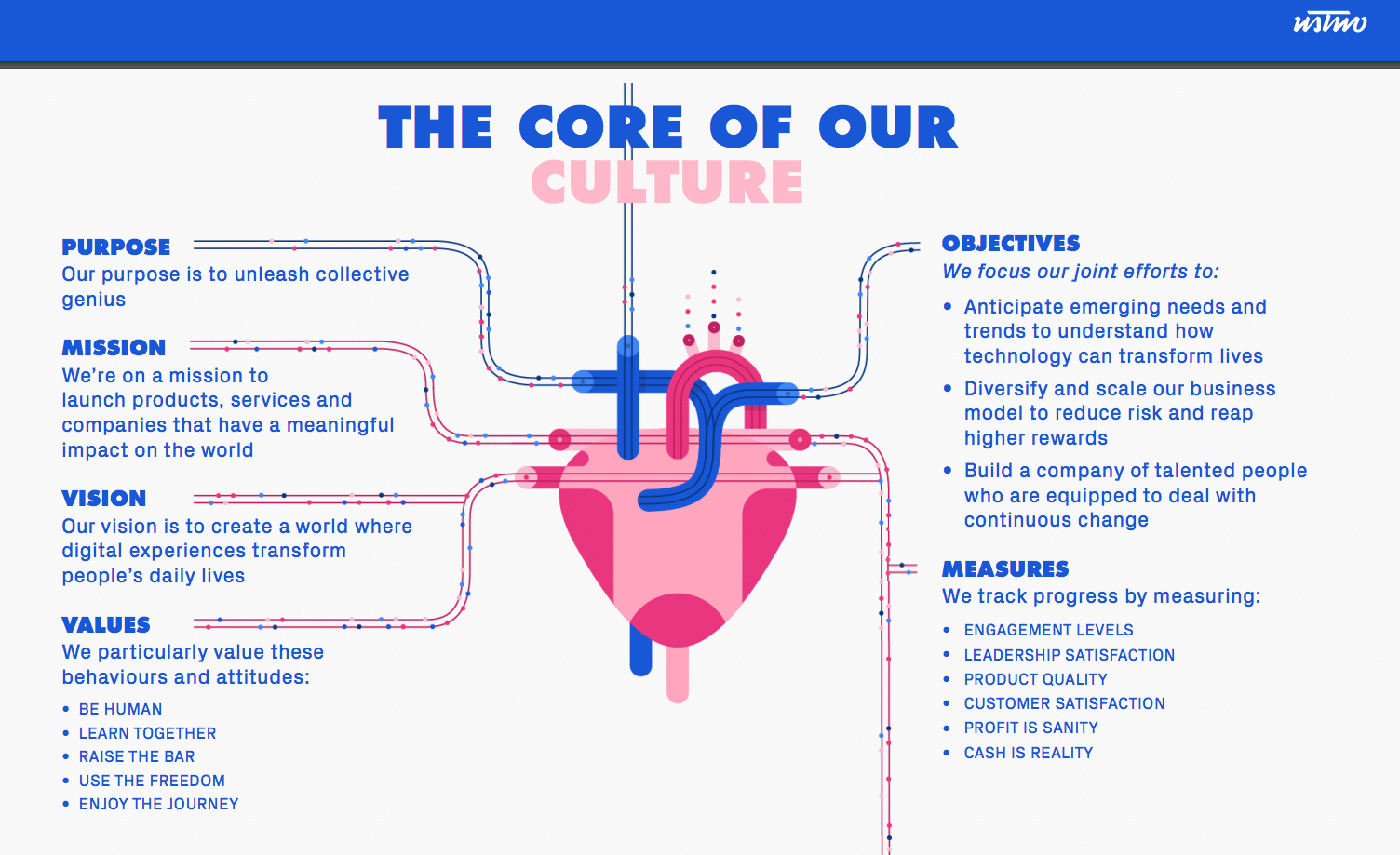We are living in a different era of work, one that can't be understood using staff surveys alone
For years the business world has relied on staff engagement surveys to take the pulse of their company, but if these stories are anything to go by, there seems to be an increase in challenges and a lack of trust from workers in their leaders to do the right thing. Business can't survive on these age-old techniques anymore.
“When trust goes down (in a relationship, on a team, in an organisation, or with a partner or customer), speed goes down and cost goes up.… The inverse is equally true: When trust goes up, cost goes down, and speed goes up.”
What makes a great place to work?
For many workers, uncertainty is the key word when it comes to their working life. A plethora of things contributes to this, heavy workloads, lack of trust, communication, leadership and strategy, over management, ineffective HR, zero hour contracts, the list goes on.
All of this has an impact on the people, their ability to do good work, the business and it's ability to do whatever it's definition is of good work.
Workers among the Top 100 Great Places To Work reported high levels of engagement and trust with their senior leaders. It is plausible to see this as employees enjoying a more human style of leadership.
“Employees want their organisations and the people who lead them to be motivated by more than just profit and business performance”
usTwo - A Fampany
Companies that don't engage with their workers on a human level have higher staff turnover, more sickness, lower productivity and ultimately fail to do good work.
The things that are common in the people that work at companies like usTwo are an ability to act like human beings and to do that the company needs to know itself and understand it's workers as whole human beings, not just numbers on a spreadsheet. usTwo do that in lots of different ways from having an annual holiday that everyone in the company attends, to regular catch up's with senior leaders. This is backed up by development programs based on real needs, uncovered during those human interactions.
In this new era of work, employees now expect to be listened to, to have a good connection to different levels in the company, to understand and be a part of the strategy of the company, to know their leaders on a more personal level and to be fulfilled at work. When employees join a company, they want an induction program that helps them fit in quickly, supporting them with their unique needs. For all of this to happen, a company really needs to know and understand its current status.
Can you trust your surveys?
The old way of measuring a company's status gives you a bunch of quantitative data, scores on things like happiness, productivity and engagement. These numbers can give you a broad brush idea of how a company is operating. But, and this is a big but, these numbers miss out on context. Most surveys don't capture information about what a person was doing or how they were feeling at the time they answered the questions.
In a recent piece of work, I observed some workers filling in an annual staff survey. It was clear that it was a chore to do, and a lot of people just ticked boxes quickly to get through the process. Even if everyone fills in the forms correctly, you still end up with a bunch of numbers that might get turned into some second-hand user stories. There are so many weak links in this way of measuring the status of a company that it amazes me how many companies base L&D and HR policy on this kind of data.
“Pulse surveys and staff satisfaction surveys don’t give you stories, they give you graphs and data, the corners and the edges of a puzzle, but you don’t get the context, you don’t get everything else. So Fieldwork’s research did that for us, it completed that picture, that puzzle.”




Fieldwork
When we do our Fieldwork, we are also trying to answer questions about things like happiness, productivity and engagement, but we do it by engaging on a human level. We work with anthropologists and ethnographers to gather qualitative data contained in stories, interviews, photographs and observations. Our work is done in a collaborative way, inviting employees to take part in documenting their own working lives in a fun and inclusive way.
“From Fieldworks research, we know that Abel & Cole works really well and people are happy and motivated when everyone’s working together and there’s that real sense of unity, family and cohesion. The biggest thing I’ve realised in the last 7 months partly due to Fieldwork research is that, you just can’t leave these things to chance. You have to design it. If you are in a very small company these things often happen for a while naturally, however over time it needs to be designed and actively facilitated.
And with a company of our size - spread across different sites, different functions we have to be super clear about what we expect, what we feel is right and wrong for our culture and communication. Because internal communications is the lubricant for all this cohesion and collaboration.”
Once companies understand their culture, rhythms, rituals and attachments to the past, they better understand the needs for the future and in doing so, make better decisions about a multitude of strategic and operational activities. The outputs of our work have a direct input on business planning, strategy, leadership development, recruitment and performance management.
Fieldwork captures the diversity and individuality in organisations, the symbols that represent people's needs, desires, rhythms and rituals. Everyone, at every stratum of the company, can be involved in uncovering and learning from explicit and tacit aspects of the social and cultural life at work.
The value of our work is in unearthing and exposing the culture, by that we mean looking at behaviours, values and beliefs, all the things that are hidden in plain sight. And when this happens companies become more human, trust is built and good work happens.
Gain clarity on who you are and how you work?
We are offering a free consultancy session (in person/Skype) to companies that want to really get to know themselves. We also have a brilliant case study we'd like to share about a recent piece of work with a large retailer. To book a session and get access to the case study just fill in the form.





